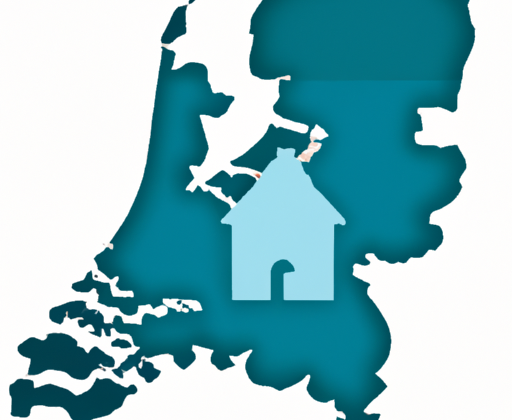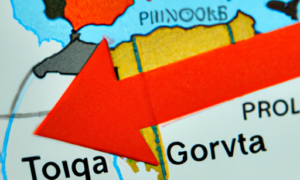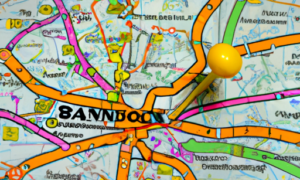
I Got You Covered: Let Me Introduce the Dutch Land Registry
Hey there! Welcome to my blog where I spill the beans on all things Dutch Land Registry. If you’re an expat planning to buy a house in the Netherlands, you’ve come to the right place. Today, I’m going to give you the lowdown on what the Dutch Land Registry is all about and why it should be your new best friend. So, buckle up and let’s dive in!
What is the Dutch Land Registry?!
Ah, the Dutch Land Registry, it’s a pretty crucial thing to know about if you’re thinking of buying a house in the Netherlands as an expat. So, what exactly is it? The Dutch Land Registry, also known as Kadaster, is like the official record keeper of all land and property in the Netherlands. It’s where you can find important information about the legal aspects of a property, such as who owns it, any mortgages or liens on it, and even the boundaries of the plot. In simple terms, it’s like the official housing database of the country, and it’s super handy to have access to when you’re in the process of becoming a proud homeowner.
Now, you might be wondering why you should even care about the Dutch Land Registry. Well, my friend, let me tell you a little secret. When you buy a house as an expat (or anyone, really), it’s important to have that extra layer of security. And guess what? The Dutch Land Registry provides just that. By having your property registered in the Land Registry, you gain legal protection and proof of ownership. You can sleep peacefully at night knowing that nobody can come and claim your precious abode. And trust me, that kind of security is priceless, especially in a foreign land. So, don’t take it lightly, make sure to get your property registered ASAP! Oh, and by the way, did I mention this?
You know what’s really awesome about the Dutch Land Registry? It gives you access to something called “legal title”. Now, before you start scratching your head, legal title basically means official proof that you are the lawful owner of the property. It’s like having the golden ticket to homeownership. Having legal title not only offers you peace of mind, but it also makes it a lot easier if you ever plan to sell your property in the future. Buyers love knowing that the person selling the house actually has the legal right to do so. It makes the whole process smoother and less stressful. So, yeah, having access to legal title through the Dutch Land Registry is definitely a game-changer when it comes to buying a house as an expat in the Netherlands. You don’t want to miss out on that!
If you’re still with me, you might be wondering how exactly you go about registering your humble abode in the Dutch Land Registry. Well, don’t worry, I got your back, my friend. Here’s the lowdown on the steps you need to take:
First things first, you’ll need to find yourself a notary. Now, you may be thinking, “Why do I need a notary? Can’t I just skip this step?” Well, my curious reader, a notary plays a crucial role in the process of registering your property. They are the ones who prepare all the necessary documents, such as the purchase deed and other legal stuff (yep, that’s the technical term). Without a notary, you’ll be left wandering in a maze of paperwork, and trust me, it’s not a fun place to be. So, save yourself the headache and find yourself a reliable notary who knows their way around the Dutch Land Registry. Believe me, it’ll make your life a whole lot easier.
Once you have your trusty notary by your side, it’s time to obtain a deed. Now, what’s a deed, you ask? Well, my friend, a deed is a legal document that transfers the ownership of a property from one party to another. It’s like the birth certificate of your new home. To obtain a deed, you’ll need to provide your notary with all the necessary information about the property, such as previous ownership, any outstanding mortgages, and so on. Your notary will then draft the deed and guide you through the whole process. Easy peasy, right?
With the deed in hand, it’s time to submit your Land Registry application. This is where you officially register your property and become part of the Dutch Land Registry family. You’ll need to provide all the relevant documents to the Land Registry, such as the deed, proof of identity, and any other paperwork your notary advises. Once everything is submitted, you’ll just have to cross your fingers and wait for the results.
Finally, the waiting game is over, and you’ve received the results of your Land Registry application. Hooray! If everything went smoothly, congratulations, my friend, you are now officially registered as the proud owner of a piece of Dutch heaven. It’s time to pop the champagne and celebrate your success. But hey, don’t forget to update your address and all that boring admin stuff. After all, being a homeowner comes with a few responsibilities.
So, there you have it, the ins and outs of the Dutch Land Registry. Now, if you want to dive deeper into the world of buying a house in the Netherlands as an expat, I highly recommend you check out this awesome resource I came across: Being Expat’s guide. It’s packed with all the expert advice and insider tips you need to navigate the Dutch housing market like a pro. Happy home hunting, my fellow expat friend!
Benefits of Using the Dutch Land Registry When Buying a House as an Expat
Hey there fellow expats, let me tell you why using the Dutch Land Registry is like hitting the jackpot when it comes to buying a house in the Netherlands! It’s like being handed the keys to your dream home with a guarantee of security and access to legal title. Can’t get any better than that, right?
First and foremost, let’s talk about security. The Dutch Land Registry is like a fortress protecting your precious investment. When you buy a house through the registry, you have the peace of mind that your ownership rights are legally recognized and recorded. No more sleepless nights worrying about potential ownership disputes or hidden surprises that might pop up later! The Dutch Land Registry has got your back, my friend.
And speaking of ownership, how cool is it that the Dutch Land Registry grants you access to legal title? It’s like being handed a VIP pass to homeownership heaven. By registering your home with the Dutch Land Registry, you not only prove your legal ownership but also gain a solid foundation for any future transactions, such as selling or mortgaging your property. It’s like having your house on the real estate market with a flashy neon sign that says, “Yep, I own this baby!”
So, here’s the deal when it comes to buying a house as an expat in the Netherlands. You don’t want to be caught swimming in murky waters when dealing with legal matters and property ownership. That’s why using the Dutch Land Registry is an essential move. It’s your ticket to a secure future and a recognized legal title. Don’t miss out on this golden opportunity, fellow expats!
Steps for Registering Your Home in the Dutch Land Registry
Alright, folks, let’s dive into the nitty-gritty of registering your home in the Dutch Land Registry! It may sound daunting, but trust me, it’s not rocket science. Just a few simple steps and you’ll be on your way to securing legal ownership of your new crib.
Step 1: Get yourself a Notary
First things first, you’ll need to find yourself a trusty notary. These legal wizards are the key to unlocking the door to the Land Registry. They’ll guide you through the entire process, making sure all your paperwork is in order and assisting you in obtaining that all-important deed.
Step 2: Obtain the Deed
Once you’ve teamed up with your notary, it’s time to get your hands on the deed. This fancy piece of paper is like the golden ticket to the Land Registry. It proves that you are the rightful owner of the property and gives you the legal right to register it. So, consult with your notary, gather all the necessary documents, and get that deed sorted.
Step 3: Submit Your Land Registry Application
Alright, now that you’ve got your trusty notary by your side and the deed in your possession, it’s time to take the plunge and submit your Land Registry application. This is where the magic happens! Your notary will take care of all the paperwork, ensuring that everything is filled out correctly and all the required information is provided. Just sit back, relax, and let them work their magic.
Step 4: Wait for the Results
Congratulations, you’ve made it to the finish line! But hold your horses, we’re not quite done yet. Now comes the waiting game. Unfortunately, the Land Registry process isn’t exactly lightning-fast. It can take a few weeks, or even a couple of months, for your application to be processed. Just be patient, my friend, and soon enough you’ll receive that sweet confirmation that your home is officially registered in the Dutch Land Registry.
So there you have it, folks – the not-so-complicated steps to register your home in the Dutch Land Registry. With a trusted notary by your side and a little bit of patience, you’ll soon be the proud owner with all the legal rights to that cozy Dutch abode. Happy house hunting!
5. Conclusion
Well, folks, we’ve reached the end of the road and it’s time for me to say my final words on the Dutch Land Registry. Let me tell you, this thing is a real game-changer, especially for us expats looking to buy a house in the Netherlands. The sheer security it offers is unparalleled, giving us peace of mind when it comes to our investment. And let’s not forget about the access it provides to legal title, ensuring that we have all the rights and protection we need. But hey, it’s not all rainbows and butterflies. The process of registering your home in the Dutch Land Registry can be a bit of a rollercoaster ride, with all those steps and waiting involved. Nevertheless, it’s definitely worth it in the end. So, if you’re considering buying a house as an expat, I highly recommend diving into the Dutch Land Registry. You won’t regret it, my friends!





